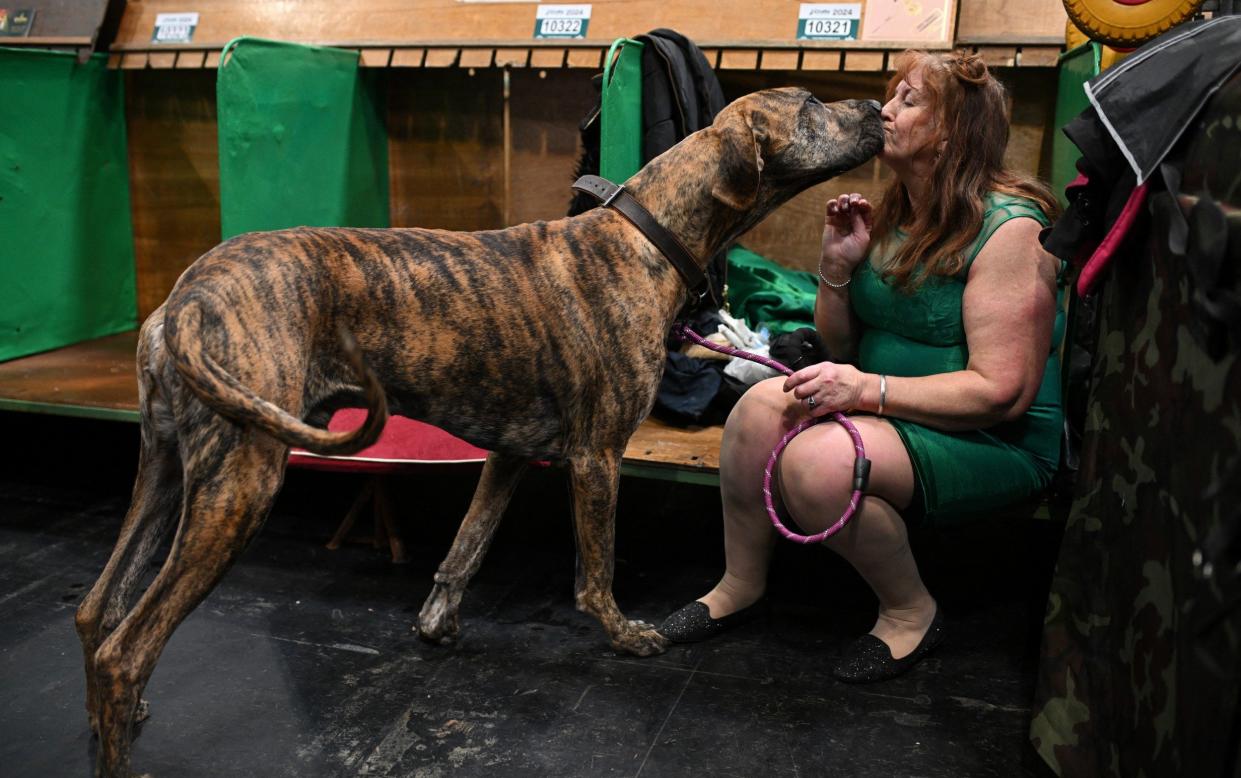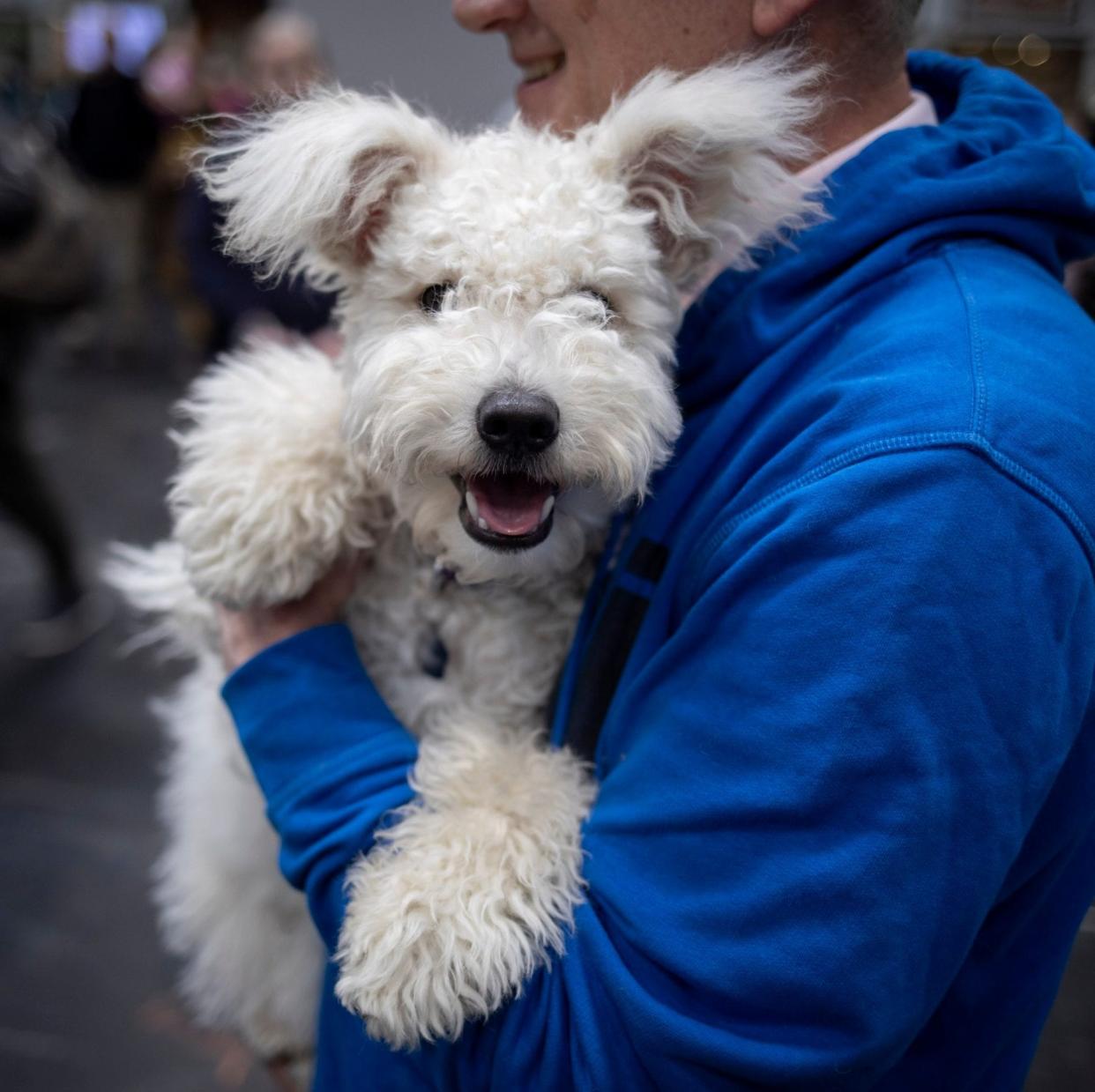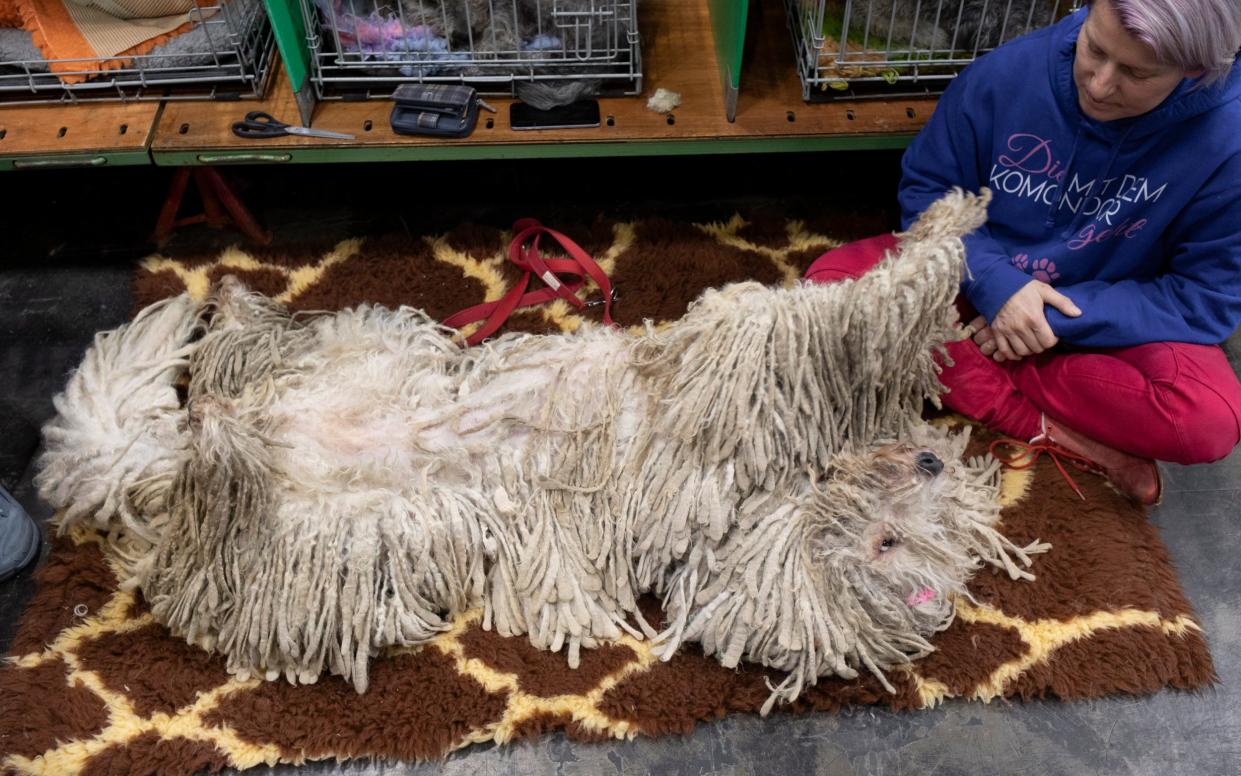Crufts officials say XL bully ban ‘dangerous and doomed to fail’

Crufts officials have said the ban on XL bullies is “dangerous and doomed to fail,” urging the Government to review the legislation.
The organisers of the world’s biggest dog show claim the law as it now stands does not stop the breeding of XL bullies or prevent attacks.
The breed was added to the list of banned dangerous dogs in February following at least six fatal attacks last year. It is now illegal to breed, sell, rehome, advertise or abandon XL bullies in England and Wales.
However, Dr Ed Hayes, head of public affairs at The Kennel Club, said that the legislation is “doomed to fail” because it has loopholes.

He said: “We are going to continue to have a supply of dogs that grow into XL bullies as years go by. There will be a huge number of XL bullies going through the court process forever more because they’ll continue to be produced by mating two legal dogs together.”
At present, a dog is considered an XL bully if an adult male is at least 20 inches at the withers (height at shoulder blades) and a female is 19 inches.
Resources limited
But Dr Hayes said many breeders pair two dogs that are half an inch under the limit, and therefore legal, which can produce a puppy that grows to be half an inch taller, making it an XL bully.
Police are therefore looking for dogs based on their appearance rather than their behaviour. “We have limited resources, it’s no secret that courts are full, prisons are full. The Dangerous Dogs Act is another strain on police resources,” he added.
If a dog has been flagged as dangerous, police put the dog into kennels, then the dog and owner are assessed in court “taking up official time” before the pet is “typically handed back to its owners”.

Since news of the ban was released police have spent at least £2.2 million housing XL bullies, according to a Daily Mail report published in January.
Bill Lambert, a spokesman for Crufts, echoed the concerns saying that the Act has not previously been effective in preventing dog attacks.
‘Bites are increasing’
He said: “If it [the ban] had worked there would be less people being bitten by dogs and in actual fact, bites are increasing. We’re really disappointed that the Government hasn’t taken this opportunity to look at the whole Act.”
He added that the Government should move to create a staged approach to supporting owners of the dogs to prevent any extreme situation rather than adding them to a banned list. For example, dogs could be muzzled in public or kept on a lead before a risk has emerged.
Critics say that conscientious pet owners who are aware of the risks their dog poses and who want to get help are already being penalised. Dog trainers need insurance to carry out their work and require additional, more expensive, insurance for dogs flagged as dangerous, making it harder for people to access help.
Following the ban, owners were required to have their pet euthanised or apply for a Certificate of Exemption which cost £92.40. In January, the Government reported that over 30,000 XL Bully dogs had been registered and more than 100 claims for financial help to euthanise had been submitted.
But many dogs were abandoned after details of the ban emerged.
Pets abandoned
Robert Alleyne, 60, founder of the Canine Instructor Academy in London, said that charities had borne the brunt of the ban as owners abandoned their pets in droves.
“Adult dogs were being tied to the gates and driveways of charities. Puppies were dumped in boxes because owners knew they wouldn’t be able to get rid of them,” he said.
The Department for Environment, Food and Rural Affairs said that while it recognises that some people are opposed to the ban, the Government has been forced to balance personal views on dog breeds with its responsibility to protect the public from dog attacks.
A Defra spokesman said: “We took quick and decisive action to ban XL Bullies in order to protect the public from tragic dog attacks, and we expect all XL Bully owners to comply with the strict conditions that are now set out in law.
“More widely, we will continue to work with the police, local authorities and animal welfare groups to encourage responsible dog ownership of all breeds, to ensure dog control issues are addressed before they escalate.”


